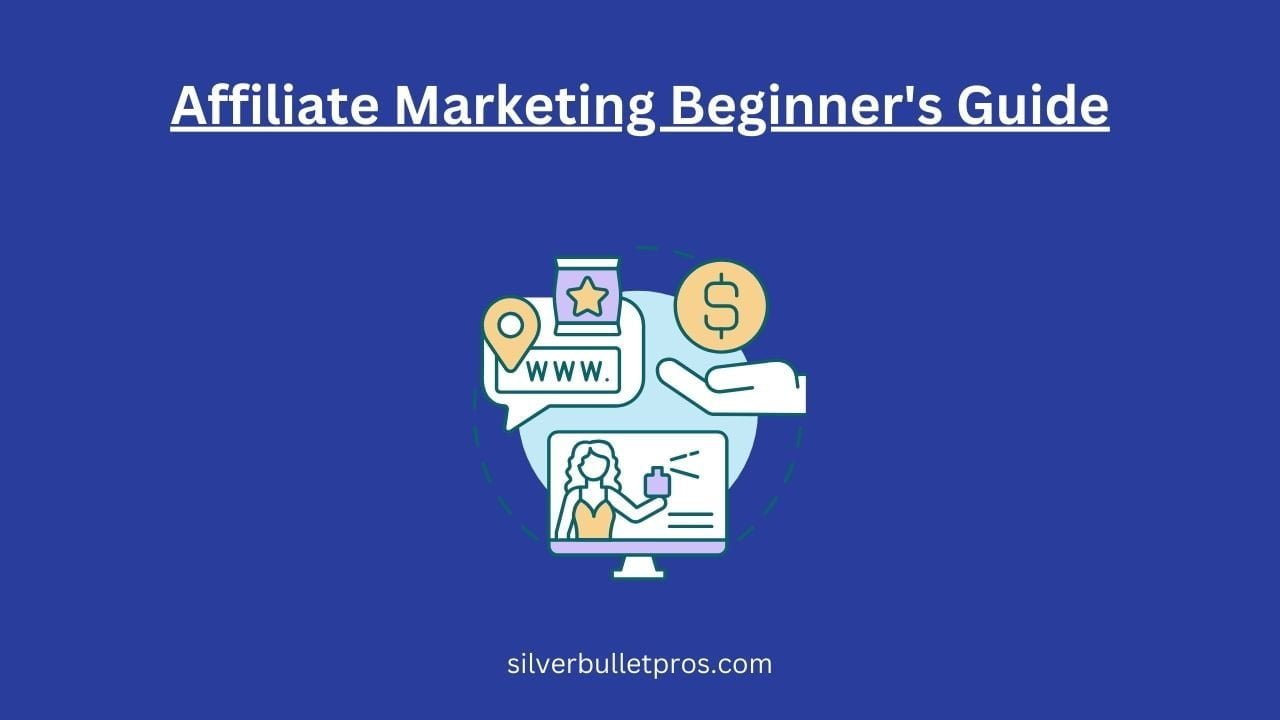

Affiliate marketing is a performance-based marketing strategy where businesses reward affiliates (partners) for driving traffic or sales to their products or services through the affiliate's marketing efforts. Affiliates use various online marketing tactics to promote the merchant’s offerings and earn a commission on any resulting sales or conversions.
How Does Affiliate Marketing Work?
Affiliate marketing operates on a revenue-sharing model. Here's a step-by-step breakdown of how it works:
- Join an Affiliate Program: Affiliates sign up for an affiliate program offered by a merchant.
- Get Unique Affiliate Links: Affiliates receive unique tracking links or codes to promote the merchant’s products.
- Promote Products: Affiliates use these links in their marketing campaigns across websites, blogs, social media, or email marketing.
- Drive Traffic and Sales: Potential customers click on the affiliate links and are redirected to the merchant's site.
- Track and Earn Commission: The affiliate program tracks the sales or leads generated through the affiliate’s links, and commissions are paid out accordingly.
Types of Affiliate Marketing
There are several types of affiliate marketing based on the relationship between the affiliate and the product or service they are promoting:
- Unattached Affiliate Marketing: The affiliate has no direct connection to the product or service.
- Related Affiliate Marketing: The affiliate promotes products or services they have a connection to but do not use themselves.
- Involved Affiliate Marketing: The affiliate has used the product or service and can provide personal testimonials and reviews.
How to Get Started with Affiliate Marketing
- Choose Your Niche: Identify a specific market or niche that you are passionate about and has a potential audience.
- Select Affiliate Programs: Research and join affiliate programs that offer products relevant to your niche.
- Create a Website or Blog: Develop an online platform to publish content and promote affiliate products.
- Produce Quality Content: Create valuable, engaging, and informative content to attract and retain your audience.
- Promote Your Affiliate Links: Use various marketing channels to promote your content and affiliate links.
Promoting Your Affiliate Products
- Content Marketing: Write blogs, articles, and reviews that naturally incorporate your affiliate links.
- Social Media Marketing: Share posts, videos, and stories featuring affiliate products on social media platforms.
- Video Marketing: Create tutorials, unboxing videos, and reviews on YouTube or other video platforms.
- Email Marketing: Send newsletters and promotional emails to your subscriber list.
How to Earn a Commission
Affiliates earn commissions based on the specific structure of the affiliate program they join. Common commission structures include:
- Pay-Per-Sale (PPS): Earn a percentage of each sale made through your affiliate links.
- Pay-Per-Click (PPC): Earn a commission for each click on your affiliate links.
- Pay-Per-Lead (PPL): Earn a commission for each lead generated through your affiliate links.
Challenges of Affiliate Marketing
- High Competition: The affiliate marketing space is crowded, making it challenging to stand out.
- Finding the Right Audience: Identifying and reaching the right target audience can be difficult.
- Compliance and Regulations: Staying compliant with laws and regulations, such as FTC guidelines, is crucial.
- Tracking Issues: Ensuring accurate tracking and attribution of sales can be problematic.
Tips for Success in Affiliate Marketing
Choosing the Right Affiliate Programs
- Look for programs with a good reputation and high-quality products.
- Ensure the program offers competitive commission rates and reliable payment terms.
Creating High-Quality Content
- Focus on providing value to your audience with informative and engaging content.
- Use SEO techniques to improve your content’s visibility in search engines.
Building Relationships with Affiliates
- Network with other affiliates and industry professionals to share insights and strategies.
- Join affiliate communities and forums to stay updated on industry trends.
Optimizing for Conversions
- Use clear calls-to-action (CTAs) and strategically place affiliate links.
- Test different marketing strategies and analyze performance data to improve conversion rates.
Paid Advertising for Affiliate Marketing
- Invest in paid advertising channels like Google Ads, Facebook Ads, or Instagram Ads to drive targeted traffic to your affiliate links.
Influencer Marketing for Affiliate Marketing
- Collaborate with influencers in your niche to promote your affiliate products to their audience.
Email Marketing for Affiliate Marketing
- Build and maintain an email list to send targeted promotions and updates about affiliate products.
Using Affiliate Marketing Platforms
- Utilize platforms like ShareASale, CJ Affiliate, and Amazon Associates to find and manage affiliate programs.
Keeping Up with Affiliate Marketing Trends
- Stay informed about the latest trends, tools, and strategies in affiliate marketing to remain competitive and effective in your campaigns.
What is affiliate marketing, and how does it work?
Affiliate marketing is a performance-based marketing strategy where you promote other companies' products or services and earn a commission for each sale or lead generated through your unique affiliate link.
How do I choose a profitable niche for affiliate marketing?
Choose a niche that aligns with your interests, has a high demand for products or services, and has a dedicated audience willing to spend money. Research the competition, trends, and profitability potential.
What are the best affiliate marketing programs for beginners?
Some beginner-friendly affiliate programs include Amazon Associates, Commission Junction, ShareASale, and affiliate networks within your niche, such as fashion, travel, or technology.
How can I drive traffic to my affiliate website or landing pages?
Implement SEO strategies, leverage social media marketing, guest post on relevant blogs, run paid advertising campaigns (PPC, social media ads), and build an email list to nurture potential customers.
What are the essential tools and resources needed for affiliate marketing success?
Essential tools include a website or landing pages, an email marketing platform, social media accounts, analytics tools (Google Analytics), content creation tools (for blog posts, videos, etc.), and tracking software to monitor your affiliate links' performance.